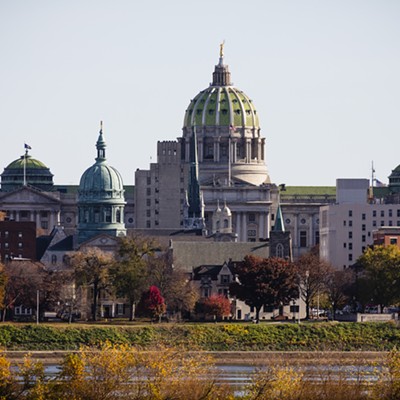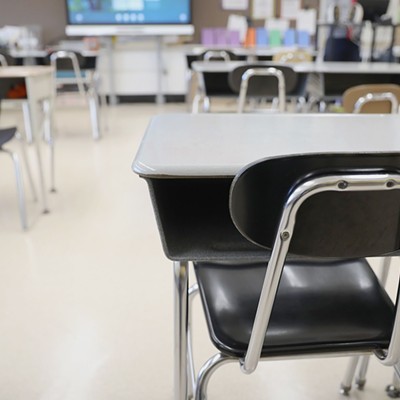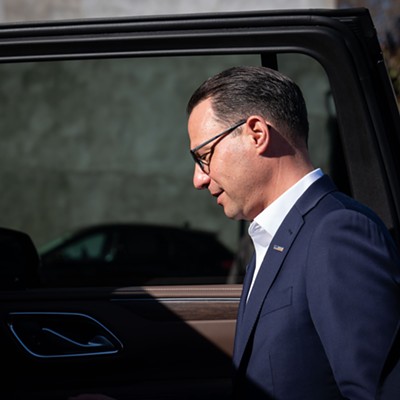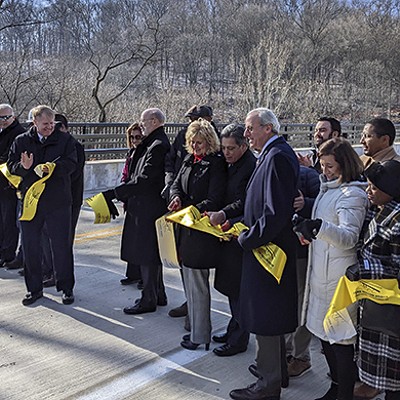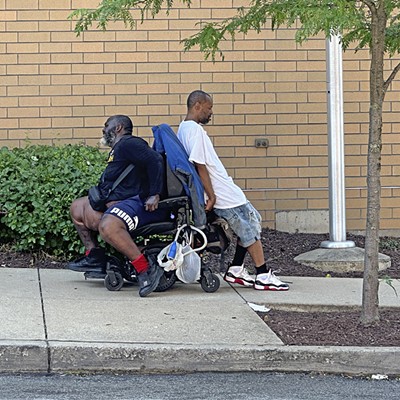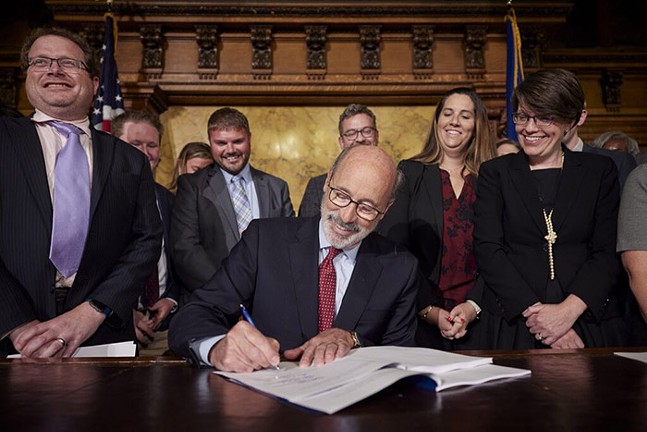
Eight days into the new fiscal year, Pennsylvania has a finalized budget.
The Republican-controlled Pennsylvania Senate voted 47-3 to approve a $45.2 billion spending plan for the 2022-23 fiscal year, sending it to Democratic Gov. Tom Wolf, who signed the proposal in a private event later Friday evening.
The House of Representatives approved the general appropriations bill in a 180-20 vote with little debate on Thursday. And while lawmakers noted Thursday and Friday that the documents aren’t perfect, they touted the bipartisan agreement and investments in education, infrastructure, community safety, mental health, and relief.
The plan increases spending by 2.9% over the 2021-22 budget and includes a $2.1 billion deposit to the state’s Rainy Day Fund. The proposal also includes an outline for spending $2.2 billion in federal relief dollars for water and sewer projects, affordable housing and home repair, and refiling the state’s unemployment trust fund to avoid a tax increase for employers.
Wolf, who leaves office in January 2023 and staked his legacy on education investments, celebrated the spending plan, specifically the $1.8 billion slated for education. This marks his eighth and final budget.
“This is an example of the collective, cooperative, collaborative action that our constituents want from us,” Senate Appropriations Committee Chairperson Pat Browne (R-Lehigh) said ahead of Friday afternoon’s floor vote.
The plan includes an $850 million increase for K-12 school districts and increases Level Up funding for the state’s poorest school districts by $225 million. The proposal also allocates an additional $525 million for the Fair Funding Formula, which distributes funds to Pennsylvania schools, and $100 million for special education.
“Since I took office, Pennsylvania’s students and families have been my top priority,” he said in a statement. “We have made long-overdue investments in the people of Pennsylvania, including better education for all, safer communities, and a brighter future.”
Philadelphia Democrat Sen. Vincent Hughes, who serves as his party’s chair on the Senate Appropriations Committee, said the plan “enhances the ball in a very dramatic way.”
“These are not perfect documents,” he said. “But there are certainly some very significant items in this budget bill that we must pay attention to.”
Other provisions in the spending plan include tax relief for individuals and businesses with a new state child tax credit, increased property tax rebates for senior citizens, and a reduction in the corporate net income tax to gradually bring Pennsylvania in line with other states.
Lawmakers have also celebrated the proposal’s tax relief provisions, including a state child tax credit equal to 30% of the federal credit, a one-time 70% property tax rebate for senior citizens, and more money for the utility assistance program.
The proposal also includes a $250,000 increase for It’s On Us PA to combat sexual assault and address safety on college campuses. It also allocates funding for gun violence intervention and prevention programs, as well as public safety efforts.
House Appropriations Chairperson Stan Saylor (R-York) said on the House floor that the package is the most comprehensive fiscal plan he has seen in his 30 years in the Legislature.
“I want to thank all four caucuses for working together to put us in a fiscally responsible position for moving forward,” Saylor said. “This is a comprehensive budget that puts the needs of people before the needs of government.”
Marley Parish is a reporter with the Pennsylvania Capital-Star, where this story first appeared.


